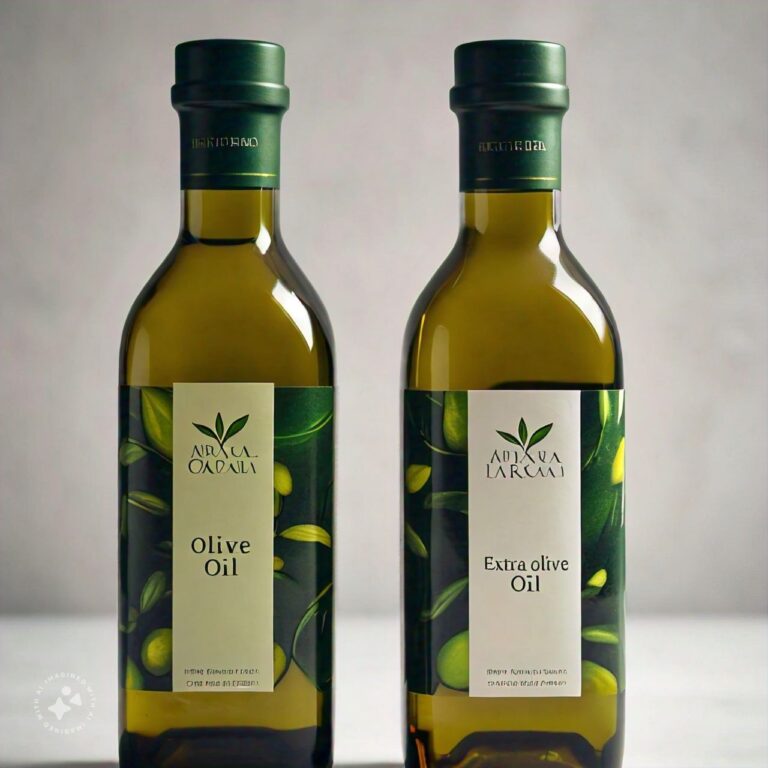
Differences Between Olive Oil and Extra Virgin Olive Oil
Olive oil and extra virgin olive oil are two widely used types of oil that come from the same source—olives—but differ significantly in terms of production methods, taste, and nutritional benefits. Both oils have a long history of being used in cooking, skin care, and even medicine, especially in Mediterranean cultures where olive trees flourish. Olive oil, in general, is a staple in healthy diets due to its beneficial fats and antioxidant properties, but the differences between regular olive oil and extra virgin olive oil (EVOO) are essential for understanding their unique qualities.
While olive oil refers to a broad category of oils derived from the olive fruit, extra virgin olive oil is considered the highest-quality variant, known for its superior taste, purity, and health benefits. EVOO is produced using the cold-pressing method without the use of chemicals or high heat, which preserves its natural flavor and nutrients. On the other hand, regular olive oil is often refined, meaning it undergoes more processing, which can strip away some of the beneficial compounds found in olives. The key differences between these two oils lie in their production processes, taste profiles, and nutritional value, making it important to choose the right type of olive oil based on your needs.
Olive Oil Overview
Olive oil is a versatile oil made by pressing olives, and it has a wide range of uses in cooking, cosmetics, and health care. It is generally categorized based on the level of processing it undergoes, and regular olive oil is often a blend of refined and virgin oils. Below are five key aspects of olive oil that highlight its characteristics and uses.
1. Production Process
Regular olive oil is typically produced using a combination of mechanical pressing and refining. The refining process involves treating the oil with heat and chemicals to neutralize the flavor and remove impurities. This results in a lighter-colored oil with a more neutral taste compared to extra virgin olive oil. The refining process also removes some of the antioxidants and polyphenols that contribute to the health benefits of unrefined oils.
- Refining: Olive oil is often refined through heat and chemicals, which results in a more neutral flavor.
- Blending: Regular olive oil is usually a blend of virgin and refined oils, balancing taste and cost.
2. Flavor and Aroma
Compared to extra virgin olive oil, regular olive oil has a milder flavor and a less pronounced aroma. The refining process removes much of the olive flavor, making it ideal for cooking when you don’t want the oil to overpower other ingredients. The neutral taste of olive oil makes it a versatile choice for frying, sautéing, or baking.
- Mild Flavor: Lacks the robust, fruity flavor of extra virgin olive oil.
- Neutral Aroma: Suitable for recipes where the flavor of the oil should not dominate.
3. Nutritional Profile
While olive oil is still rich in healthy fats, especially monounsaturated fats, the refining process reduces its content of antioxidants and polyphenols. These compounds are responsible for many of the health benefits associated with olive oil, such as reducing inflammation and lowering the risk of heart disease. Regular olive oil still offers some nutritional benefits, but they are not as pronounced as those in extra virgin olive oil.
- Healthy Fats: High in monounsaturated fats that are good for heart health.
- Lower Antioxidants: The refining process reduces the amount of antioxidants and polyphenols.
4. Uses in Cooking
Olive oil is often used in cooking due to its high smoke point, which makes it suitable for high-heat methods like frying, grilling, and roasting. The neutral flavor of refined olive oil allows it to blend well with various ingredients, making it a popular choice for chefs who need a versatile cooking oil that doesn’t alter the taste of the food.
- High Smoke Point: Ideal for frying, roasting, and other high-heat cooking methods.
- Versatile Ingredient: Its mild flavor makes it suitable for a wide range of dishes.
5. Affordability and Availability
Regular olive oil tends to be more affordable than extra virgin olive oil due to its refining process and blending with lower-grade oils. It is widely available in supermarkets and is often the go-to oil for everyday cooking. Its lower cost and mild flavor make it a practical choice for home cooks who need a reliable oil for various recipes.
- Cost-Effective: More affordable than extra virgin olive oil.
- Widely Available: Easy to find in grocery stores and supermarkets.
Extra Virgin Olive Oil Overview
Extra virgin olive oil (EVOO) is the highest grade of olive oil, known for its superior flavor, nutritional benefits, and purity. Below are five key aspects of extra virgin olive oil that highlight why it is considered the gold standard among oils.
1. Production Process
Extra virgin olive oil is produced through a process called cold pressing, where olives are mechanically pressed to extract the oil without the use of heat or chemicals. This method preserves the natural flavors and nutrients of the olives, resulting in a pure, unrefined oil. EVOO is not blended with any refined oils, which is why it retains a robust, fruity flavor and is considered the least processed form of olive oil.
- Cold Pressing: The oil is extracted mechanically without heat or chemicals.
- Unrefined: EVOO is not mixed with refined oils, ensuring its purity and quality.
2. Flavor and Aroma
One of the standout features of extra virgin olive oil is its rich, complex flavor. Depending on the type of olives used, EVOO can have fruity, peppery, or grassy notes. It also has a strong aroma that enhances the taste of dishes, making it ideal for drizzling over salads, vegetables, or bread. The bold flavor of extra virgin olive oil makes it a favorite in Mediterranean cooking, where the taste of the oil is often highlighted.
- Rich Flavor: Fruity, peppery, and sometimes grassy notes.
- Strong Aroma: Adds depth to dishes and enhances overall flavor.
3. Nutritional Profile
Extra virgin olive oil is packed with nutrients, including high levels of antioxidants, polyphenols, and vitamin E. These compounds contribute to its numerous health benefits, such as reducing inflammation, improving heart health, and lowering the risk of chronic diseases. EVOO’s high content of monounsaturated fats, which are considered "good fats," also makes it a heart-healthy choice.
- High in Antioxidants: Contains more antioxidants and polyphenols than refined olive oil.
- Health Benefits: Associated with reducing inflammation and promoting heart health.
4. Uses in Cooking
Although extra virgin olive oil has a lower smoke point compared to refined olive oil, it is still suitable for light cooking, such as sautéing, but is often best enjoyed raw to preserve its delicate flavor and nutrients. EVOO is commonly used in dressings, dips, and as a finishing oil for dishes that require a high-quality flavor enhancer.
- Best Used Raw: Ideal for drizzling over salads, vegetables, and bread.
- Moderate Heat: Can be used for light sautéing but not recommended for high-heat cooking like frying.
5. Price and Availability
Due to its labor-intensive production process and high quality, extra virgin olive oil is typically more expensive than regular olive oil. The higher cost reflects the care taken in the production of EVOO, from the selection of the olives to the cold-pressing method. However, despite the price difference, EVOO is widely available in most supermarkets and specialty food stores.
- Higher Price: Costs more due to its purity and production method.
- Widely Available: Can be found in most grocery stores, often with a variety of brands and flavors.
Differences Between Olive Oil and Extra Virgin Olive Oil
- Production Process
- Olive Oil: Produced using refining methods that involve heat and chemicals.
- Extra Virgin Olive Oil: Produced using cold pressing, without heat or chemicals.
- Refinement
- Olive Oil: Typically refined, removing some of the natural flavors and nutrients.
- Extra Virgin Olive Oil: Unrefined, preserving the natural flavor and nutrient content.
- Flavor
- Olive Oil: Has a mild, neutral taste.
- Extra Virgin Olive Oil: Rich and robust, with fruity, peppery, or grassy notes.
- Nutritional Value
- Olive Oil: Contains fewer antioxidants and polyphenols due to the refining process.
- Extra Virgin Olive Oil: High in antioxidants, polyphenols, and vitamin E, providing more health benefits.
- Smoke Point
- Olive Oil: Higher smoke point, making it suitable for high-heat cooking.
- Extra Virgin Olive Oil: Lower smoke point, better for raw use or light cooking.
- Aroma
- Olive Oil: Neutral aroma, suitable for dishes where the flavor should not dominate.
- Extra Virgin Olive Oil: Strong aroma that enhances the taste of dishes.
- Price
- Olive Oil: Generally more affordable due to the refining process.
- Extra Virgin Olive Oil: More expensive, reflecting its higher quality and purity.
- Color
- Olive Oil: Lighter in color due to the refining process.
- Extra Virgin Olive Oil: Darker green or golden color, reflecting its natural state.
- Shelf Life
- Olive Oil: Longer shelf life due to refining and processing.
- Extra Virgin Olive Oil: Shorter shelf life and more prone to oxidation due to its natural state.
- Usage
- Olive Oil: Best for high-heat cooking like frying and roasting.
- Extra Virgin Olive Oil: Best used raw or in light cooking to preserve flavor and nutrients.
Conclusion
Both olive oil and extra virgin olive oil are excellent options for cooking and enhancing the flavor of dishes, but they serve different purposes. Olive oil is a versatile, mild-tasting oil ideal for high-heat cooking, while extra virgin olive oil is prized for its rich flavor, nutritional value, and best use in raw dishes or light cooking. Understanding the differences between these two types of oil can help you make better choices in the kitchen, depending on your cooking needs and the flavors you want to highlight. While extra virgin olive oil offers superior health benefits and taste, regular olive oil is a cost-effective and practical option for everyday cooking.
FAQs
Related Topics
- All
- Animals
- Diseases
- Health
- Money
- Politics
© 2024 OnYelp.com. All rights reserved. Terms and Conditions | Contact Us | About us





